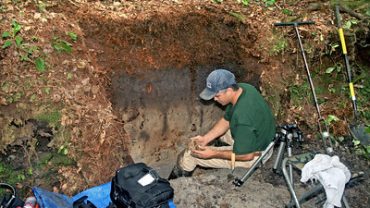Soil Science
The Master of Soil Science enhances professional skills and expertise essential to evaluating land for a variety of uses. These include wetlands protection and restoration, on-site waste disposal, forest management, horticulture, and agriculture. The program allows students to increase their technical knowledge as well as develop field skills for understanding how soils should best be managed to maintain environmental quality and human health. The program requires 30 credit hours, including enrollment in two field-based short courses.
This program may lead to Professional Licensure.
Eligibility
Admission to the program requires:
- Undergraduate grade point average of 3.0 or greater
- Adequate training in mathematics, biology, chemistry, physics, and soil science
Plan of Study
Once admitted to the program students will select an adviser from the full-time faculty who will help plan their program. Our soil science faculty understands that field skills are indispensable for a complete education in the soil science field. Therefore, we have designed our program to require two hours of credit in intensive field skills training. To satisfy this need we are offering classes in soil geomorphology and hydric soils which concentrate this training into four or five day-long classes.
Career Prospects
We believe there is a need for advanced soil science training by busy professionals in the environmental sciences and health fields. We see professionals who want to develop new skills, keep up-to-date or earn a professional license. We understand that the demands of full-time employment and busy personal lives preclude these professionals from returning to our campus to pursue an advanced degree. Yet, career advancement often demands an advanced degree. The Master of Soil Science degree provides outstanding graduate education and professional development opportunities for practicing professionals in real estate and land development, waste management, cooperative extension, and other public and private organizations and agencies engaged in soil and environmental sciences as well as land management.

